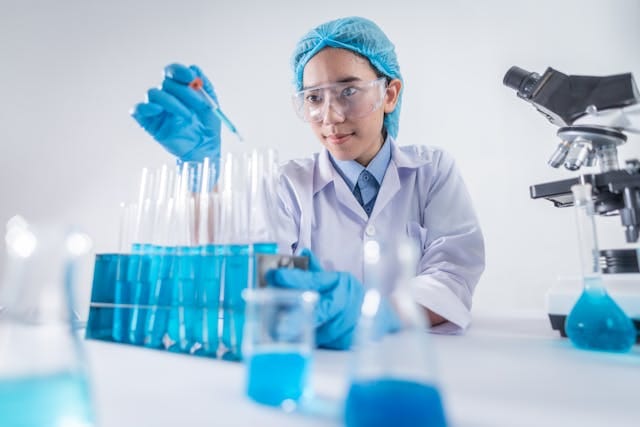7 Things You’ll Need to Learn in Medical School

Learning in medical school calls for more than just textbook memorization. The demanding courses are meant to mold students into professionals capable of managing the rigors of patient care, research, and difficult decision-making. Medical students have to acquire a broad spectrum of abilities that go much beyond mere technical knowledge. From critical thinking to effective communication, every element of instruction helps shape future medical leaders. But medical school is about knowing the art of medicine as much as it is about the sciences. Above all, you will have to interact personally with patients, keep up with changing medical technology, and negotiate high-stress situations.
Understanding Anatomy from a Practical Perspective
Although medical knowledge is based on anatomy, learning about it in medical school goes beyond simply memorizing bones and muscles. You have to learn to see anatomy practically, with an eye toward its relevance in actual clinical settings. This calls for breaking out cadavers, a necessary component of the education process that closes the knowledge gap between theory and practical experience. Dissection gives a concrete knowledge of anatomical relationships that just cannot be obtained from books or 3D models in addition to insights on the structure of the body.
See also: Why Early Loan Management is Crucial for Medical Students_Tips for Stay Ahead of Debt
Building Clinical Decision-Making Skills
Medical practice is fundamentally based on clinical decision-making, which calls for more than just knowledge; it’s about using that knowledge under duress. Medical students pick this ability set by experience with many patient situations; it is not something they develop overnight. A great learning curve exists in the ability to evaluate symptoms, arrange suitable diagnostic tests, and arrive at a reasonable diagnosis while keeping the patient’s background in mind.
Learning Medication Management and Pharmacology
Pharmacy is far more than just knowing which drug treats a given condition. Knowing pharmacology helps one to appreciate the subtleties of contraindications, side effects, and drug interactions. Students in medical school are taught to view drugs as part of a whole treatment plan that takes the patient’s general health into account rather than as separate entities. Treating a diabetic patient with hypertension, for example, may call for a sophisticated approach to prevent the aggravation of either disorder.
Corresponding with Colleagues and Patients
The medical school stresses at every level the critical ability of a doctor to communicate effectively. It is not enough to be knowledgeable; that knowledge needs to be presented to patients compassionately and successfully to colleagues. Medical students will come across patients from many backgrounds; therefore, their ability to clearly communicate difficult medical knowledge will greatly affect the outcomes of patients.
Creating Exact SOAP notes
A basic component of medical documentation and a must-learn ability for students is learning how to write a SOAP note (Subjective, Objective, Assessment, Plan). Medical students are taught to record every detail of patient interactions carefully to guarantee accuracy. Not only are SOAP notes a record of patient care, but they also enable other healthcare providers to grasp a patient’s situation and treatment plan rapidly.
Dealing with High-Stress Situations
Medical training and practice naturally include stress; learning to control it is a skill unto itself. From emergency rooms to operating theaters, where every second counts, students find themselves under high pressure throughout medical school. Managing stress while keeping accuracy and clarity becomes crucial since even little mistakes can have significant effects. By teaching stress management strategies, including mindfulness and prioritizing, medical schools equip their students for these circumstances.
Adjusting to Modern Tools
Technology supporting patient care is always changing along with medicine. Medical students have to learn how to include technology in their work, from sophisticated diagnostic tools to electronic health records (EHRs). Learning how to use these technologies is only one aspect of adaptation; another is realizing their part in improving general outcomes, lowering mistakes, and enhancing patient care. Students also have to keep updated on developing medical technologies, including robotic surgery, artificial intelligence-powered diagnostic instruments, and telemedicine. These developments are altering the delivery of healthcare; hence, it is imperative to learn how to apply them.
Conclusion
Medical school is a multifarious trip meant to turn students into well-rounded professionals ready to manage the complexity of patient care. From practical knowledge of anatomy to advanced pharmacology and technology adaptation, every ability is essential for a successful healthcare provider. Future doctors who commit to lifelong learning will be ready for the always-changing challenges of modern medicine.
